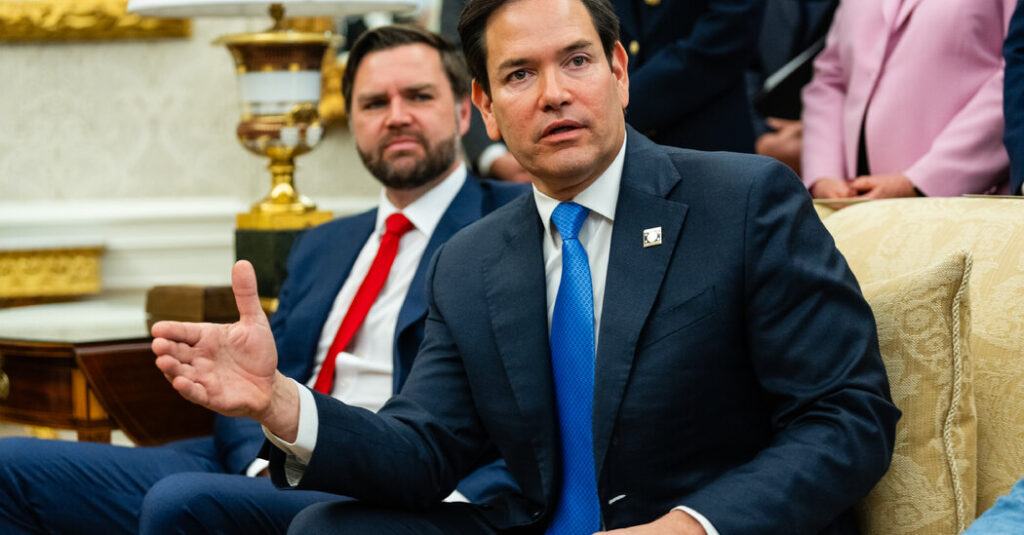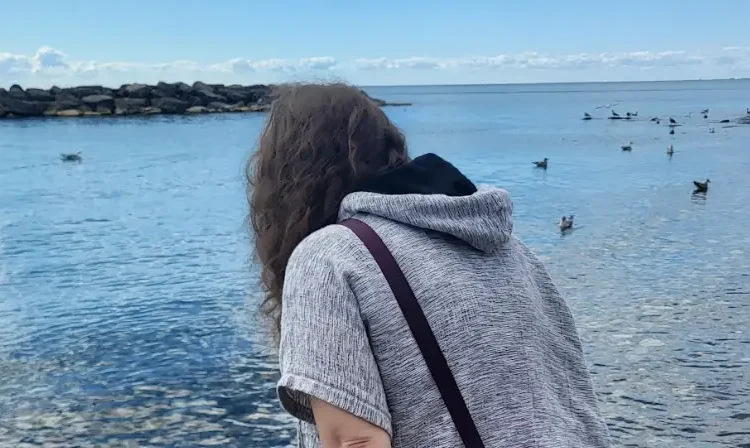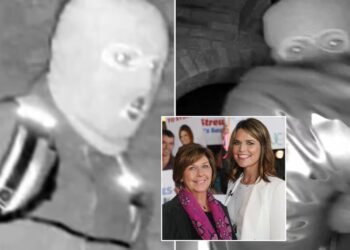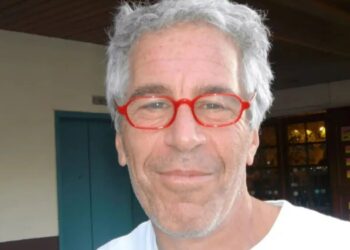When President Trump signed an executive order in September labeling an entity known as antifa a “domestic terrorist organization,” federal agencies scrambled to find ways to enact policy based on the directive.
They faced major hurdles. For one thing, there is no concrete left-wing group called “antifa,” as Mr. Trump asserts. Second, the U.S. government does not have legal authority to take action against a group it wants to call a “domestic terrorist organization.”
But Secretary of State Marco Rubio has stepped in to try to help carry out the president’s orders.
Mr. Rubio announced on Thursday that the State Department was applying the dual labels of “specially designated global terrorist” and “foreign terrorist organization” to four groups in Western Europe. Both designations would be effective by Nov. 20.
“Groups affiliated with this movement ascribe to revolutionary anarchist or Marxist ideologies, including anti-Americanism, ‘anti-capitalism,’ and anti-Christianity, using these to incite and justify violent assaults domestically and overseas,” Mr. Rubio said in a statement.
The designations impose financial penalties on the groups and their associates. Any assets and property they have in the United States are frozen, and American citizens, companies and institutions are barred from doing transactions with them. It is unclear whether that will materially affect the groups.
The State Department released a fact sheet on the groups with the names the agency is using for them. At least one of the groups is not known by the name on the sheet. In their countries, none are linked to anything called “antifa.”
The groups, according to the department, are Antifa Ost in Germany; the Informal Anarchist Federation or the International Revolutionary Front in Italy; Armed Proletarian Justice in Greece; and Revolutionary Class Self-Defense in Greece.
The department said the organizations had all carried out violent acts, including planting bombs, or had made threats to do so. Nonetheless, the acts outlined in the fact sheet are on a much smaller scale compared to the violence carried out by other groups that the U.S. government has labeled foreign terrorist organizations, including branches of Al Qaeda and the Islamic State.
The State Department’s recent search for left-wing groups to designate as terrorist organizations appears to trace back to Mr. Trump’s executive order.
“All relevant executive departments and agencies shall utilize all applicable authorities to investigate, disrupt, and dismantle any and all illegal operations — especially those involving terrorist actions — conducted by antifa or any person claiming to act on behalf of antifa,” the executive order said.
That order had no meaningful effect. One reason is factual: While some conservatives in the United States talk about antifa as if it were an actual organization, with a centralized leader, a bank account and membership rolls, it is instead a term for a diffuse and sometimes violent protest culture or movement of far-left activists who want to stop the far right.
Another reason is legal. While there is a law that allows the State Department to designate foreign groups as terrorists, freezing their assets and making it a crime to provide material support to them, the government has no authority to do the same for domestic groups.
Those obstacles appear to have prevented the first Trump administration from doing anything about antifa after Mr. Trump made a similar vow in 2020. But the second Trump administration is notably less constrained.
The search for even minor antifa-like groups abroad raises the possibility that the administration could be trying to find links of any kind between those groups and American organizations. Any connections could serve as a pretext for taking action against the U.S. entities. Such a campaign would be part of the administration’s broader effort to threaten liberal protesters and donors to progressive groups.
In Germany, the group the State Department calls Antifa Ost is not known by that name. It is described as the group around “Lina E.,” a woman put on trial for actions tied to the group, or the “Hammer Band,” because of the tools that people associated with it use to attack neo-Nazis.
It is an unstructured group of violent far-left extremists known for beating up neo-Nazis in coordinated attacks. Experts say the group has no hierarchy or defined membership. But several people associated with the group have been convicted for assault and criminal conspiracy.
Others have been indicted on attempted homicide, assault and criminal conspiracy charges, and are awaiting trial. One German associate of the group, Maja T., is being tried in Hungary in attacks on neo-Nazis there.
While left-wing extremist violence has increased in Germany in recent years, a far greater security threat comes from people associated with far-right extremism, experts say. Last year, twice as many assaults were carried out by right-wing actors than by people associated with the far-left, according to police data.
The Italian group designated by the State Department has claimed responsibility for attacks on politicians, embassies, state-owned companies and others over the last 22 years, including ones in which civilians were injured with bombs that were planted or mailed. In letters, the group has described itself as an “informal” network of “action groups and individuals.”
Both of the organizations in Greece are anti-establishment groups. Armed Proletarian Justice was behind a failed bomb attack on the riot police headquarters in Athens in December 2023. Revolutionary Class Self-Defense took credit for an explosion in April at the offices of the country’s railway operator, in a protest over Greece’s worst train disaster — an accident in 2023 that killed 57 people and for which no government official has been held accountable.
Under Mr. Rubio, the State Department has been changing the standards by which it makes foreign terrorist designations. In February, he designated eight criminal groups and drug cartels in Latin America as foreign terrorist organizations, and he added two more in September. Those groups do not carry out violence based on ideology, which had been a common thread among organizations previously labeled terrorists by the U.S. government.
Those actions by Mr. Rubio followed an executive order by Mr. Trump in January in which he designated drug cartels as foreign terrorist organizations. The Trump administration has cited the designations in trying to justify military strikes on boats in the Western Hemisphere that have killed at least 80 civilians since early September, including fishermen.
Reporting was contributed by Charlie Savage from Washington, Christopher F. Schuetze from Berlin, Josephine de La Bruyère from Rome and Niki Kitsantonis from Athens.
Edward Wong reports on global affairs, U.S. foreign policy and the State Department for The Times.
The post As Trump Targets Antifa in U.S., Rubio Labels European Groups as Terrorists appeared first on New York Times.




